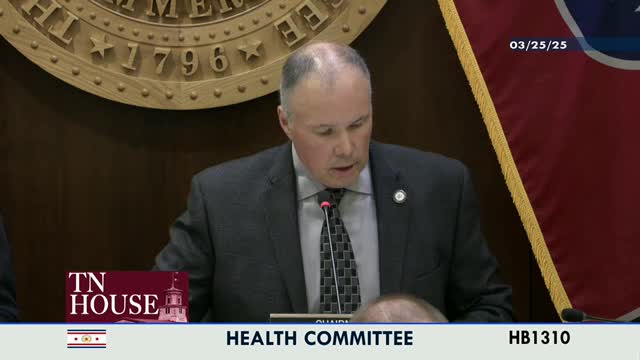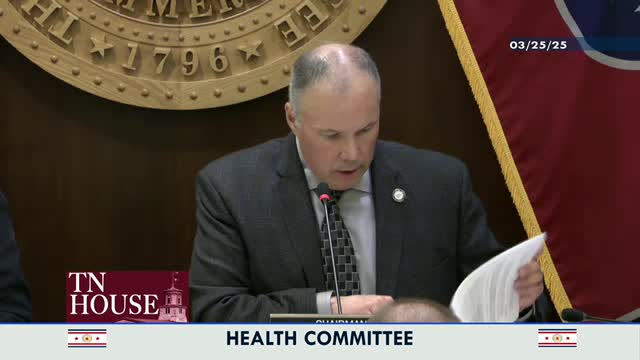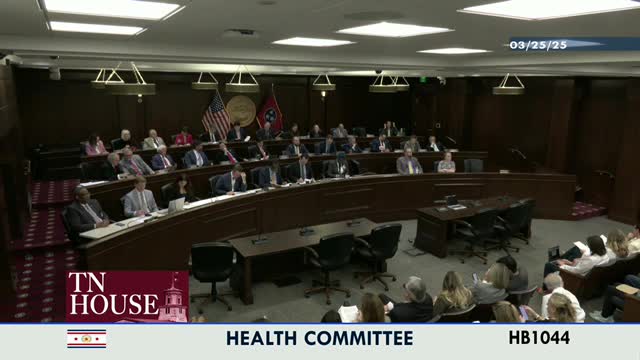Article not found
This article is no longer available. But don't worry—we've gathered other articles that discuss the same topic.

Votes at a glance: House Health Full Committee advances a slate of health bills to calendar and rules

Committee advances bill to create medical-expense relief fund to limit TennCare estate recoveries; fiscal estimate draws scrutiny

